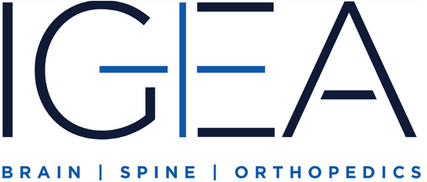NEUROENDOVASCULAR EMBOLIZATION IN NEW JERSEY & NEW YORK
Patients with abnormal blood vessels in the brain experience a variety of symptoms that can be painful, confusing, upsetting, and lead to serious medical issues. If you’ve been diagnosed with an
aneurysm,
arteriovenous fistula, or
arteriovenous malformation, the idea of open surgery may add to your concerns. For patients throughout New Jersey and New York, IGEA Brain, Spine & Orthopedics offers minimally invasive, highly effective endovascular embolization for treatment. Learn more about how our award-winning
neurosurgeons perform this procedure to treat anomalies and restore peace of mind.
CONDITIONS TREATED BY ENDOVASCULAR EMBOLIZATION
When blood vessels in the brain don’t function as they should, patients experience a host of symptoms and challenges. Endovascular embolization helps correct these issues without open surgery and is often used to treat the following conditions:
-
Aneurysm
Arterial walls are composed of a thin internal layer, a smooth muscular middle layer, and an outer layer of connective tissue. When one or more of these structures weaken, balloon-like areas occur that resemble berries on a vine. These areas may go undetected for extended periods, but can also leak (bleed) or rupture, causing hemorrhagic stroke, cognitive and physical disabilities, and even death.
-
Arteriovenous Malformation (AVM)
Like all organs, our brain relies on arteries to bring oxygenated blood from the heart and veins to return oxygen-depleted blood. In cases of an AVM, an abnormal tangles of vessels interrupt the flow of blood and deny areas of the brain the oxygen they require. Over time, these abnormal vessels may weaken and rupture, leading to hemorrhage, stroke, or brain damage.
-
Arteriovenous Fistula
When arteries and veins become twisted and fuse together, they form an arteriovenous fistula that causes blood flow to bypass capillaries and starve nearby tissues of oxygen and nutrients. Over time, the fistula may enlarge and can create sounds that transmit through the skull that patients may even hear. When left untreated, arteriovenous fistulas can grow and potentially bleed into the brain or spine leading to disability and even death.
If you’ve been diagnosed with one of these conditions, your neurosurgeon will perform comprehensive assessments to determine which procedure is most appropriate for you. These often include a detailed medical history, physical exam, diagnostic imaging, and other tests to determine the location, shape, and size of the abnormal blood vessels.
ENDOVASCULAR EMBOLIZATION TREATMENT
Patients receive relaxing medications or general anesthesia before an endovascular embolization surgery ensuring they are comfortable during the procedure. Your neurosurgeon will access a vessel in the groin or wrist for the insertion of a catheter in a larger artery. The catheter is introduced and guided toward the affected area.
When this area is reached, the surgeon will inject a safe material to create an artificial embolus and seal the vessel. A variety of materials are used based on your condition and may include:
- Biological glue
- Coils
Most patients will stay in the hospital for monitoring for one or two days after treatment. Those who experience bleeding during or after the procedure may be asked to stay longer for further treatment and observation.
BENEFITS AND RISKS
Endovascular embolization is a safe, trusted procedure with outstanding success rates. Because it is a minimally invasive surgery, there will be less scarring and recovery periods are shorter. The procedure is a good alternative for those who may be too weak to withstand open surgery, and hospital stays are typically less than traditional surgery.
Yet like all surgeries, endovascular embolization does present some degree of risk. While negative outcomes are uncommon, patients may be at risk for:
- Bleeding in the brain
- Arterial damage
- Infection
- Recurring symptoms
Depending on the abnormality, sometimes the lesion will require more than one session for complete treatment. There is also a small chance that the material used to create the embolus will fail, requiring additional treatment.
At IGEA Brain, Spine & Orthopedics, our dedicated
neurosurgeons are committed to educating every patient about the risks and benefits associated with treatment. Your physician will answer your questions, offer information, and do everything possible to help achieve a positive outcome.
LEARN MORE ABOUT ENDOVASCULAR EMBOLIZATION
Are you a good candidate for endovascular embolization? Only a consultation with an experienced neurosurgeon can determine if this procedure is right for you. To learn more or schedule an appointment at one of our New Jersey or New York locations, contact IGEA Brain, Spine & Orthopedics today.

